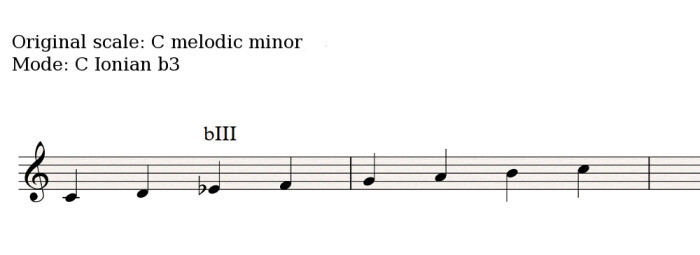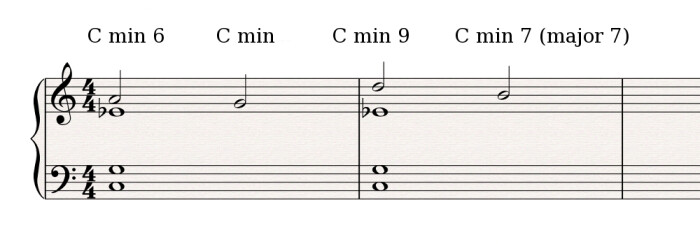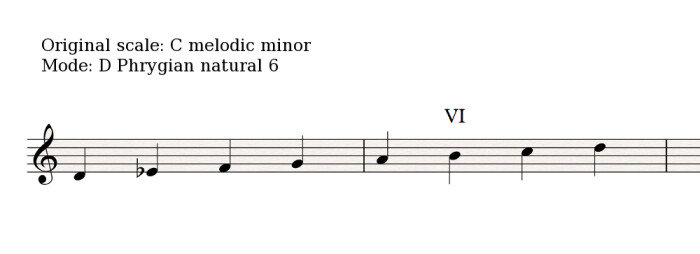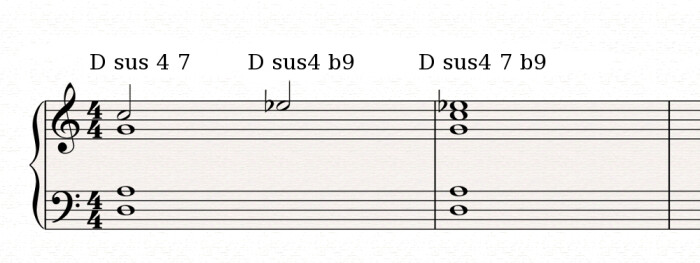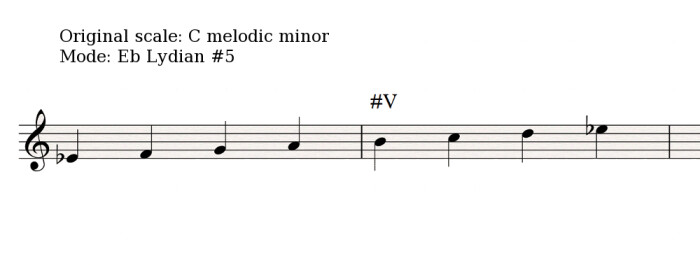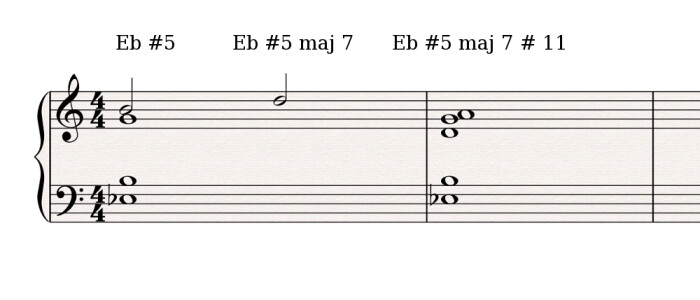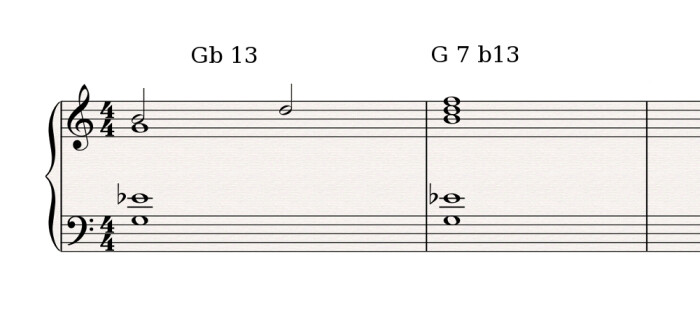After the brief deviation in the last installment, it's time to continue with our favorite altered modes.

In article 56 you saw that altered modes come from minor scales, and more specifically the harmonic and melodic minor scales. Remember that since the natural minor scale is the relative minor of a major scale, the modes that spawn from it cannot be considered different from those created from the corresponding relative major scale. Finally,, before moving on, I invite you to refresh your memory regarding NCDs (article 48) and ACDs (article 56).
In the present article I won’t go over the specific melodic minor modes which are the altered scale (article 57), the Bartók scale (article 58) and the half-diminished scale (article 59), or the modes based on the 7th, 4th and 6th degree of the melodic minor scale respectively.
We’ve discussed these modes enough in the corresponding articles. But you still have all the other modes to explore, so we’d better move on!
The Ionian b3 mode

The name of this mode directly implies the fundamental difference that exists between major scale and its parallel melodic minor, in other words, the flat third. If you don’t quite remember what a parallel scale is, I suggest you refer to the paragraph on tonal substitution in article 16.
This mode is associated to the minor 7 chord (major 7):

The very particular sound of this chord makes it the ideal candidate to create an ambiguous and potentially distressing environment, don’t you think?
You can also find the Ionian b3 mode used with the minor 6 and minor 9 chords:

The Phrygian natural 6 mode

The second mode stemming from a melodic minor scale is not based on the Dorian mode as you might have thought, but rather on the Phrygian mode. In fact, the flat third of the original scale makes the first interval of this mode a minor second, like in the Phrygian mode. This modes differs from the traditional Phrygian mode in that it features a natural sixth.
On the other hand, even though it’s not considered a Dorian mode, the Phrygian mode natural 6 is based on the same chords, namely a minor triad or a minor 7 chord.
Apart from these chords, you can uses this mode within harmonic contexts making use of sus4 chords or take advantage of the NCD to use it with sus4 13 chords.

The Lydian #5 mode

This is the third mode of the melodic minor scale
In this case, the minor third of the original scale means that the first interval of the mode becomes a major second and, consequently, the third of the mode in question becomes major, too. This mode is based on the #5 maj 7 chords, but also on maj 7 #11 chords.

The Mixolydian b6 mode

This is the last mode of the melodic minor scale which we still haven’t studied. It’s based on the fifth degree of the original scale. This mode is based on major and major 7 chords, but it’s flat sixth also allows it to be employed with minor 13th chords.


